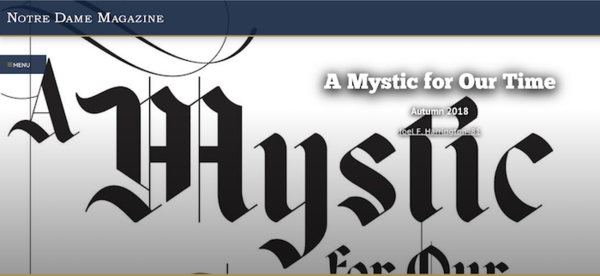Notre Dame Magazine: "A Mystic for Our Time"
I have a power in my soul which is ever receptive to God. I am as certain [of that] as that I am a man, that nothing is so close to me as God. God is closer to me than I am to myself: my being depends on God’s being near me and present to me.
— Meister Eckhart (circa 1260-1328)
The scenario is bleak: Consumerism and materialism dominate all aspects of social life. Older people look with alarm at the crumbling of civic and religious institutions. Young people view the future with a sense of foreboding. Politicians appear self-interested, religious leaders hypocritical, business people ever more corrupt. Violence is escalating at home and abroad, with no ready solution in sight. Alienation and disorientation are pervasive.
Whatever similarities we may find in our contemporary predicament, the society I’m describing is 14th-century Germany. As in 21st-century America, many people of the time, feeling battered by the world around them, sought spiritual wisdom and a more profound connection to the divine. In the early 1300s, this meant that a large number of practicing Christians, laypeople and clerics alike, were searching for a more direct and satisfying experience of God’s presence than what they found in familiar institutional practices.

This is an excerpt from "A Mystic from Our Time," by Joel F. Harrington '81, published in Notre Dame Magazine, Autumn 2018. Read the full feature.